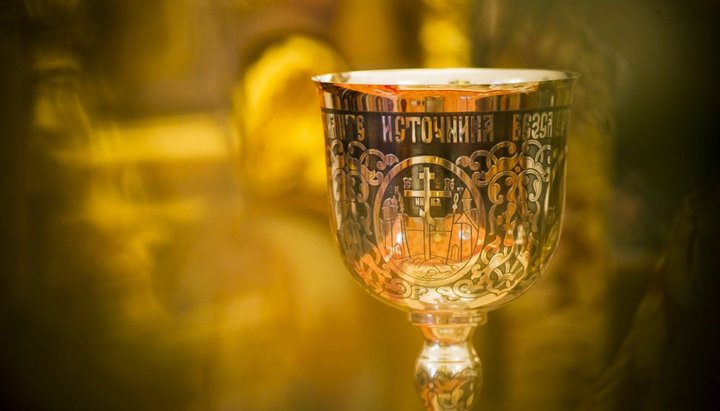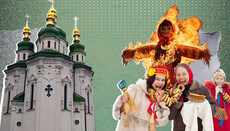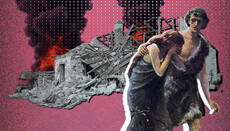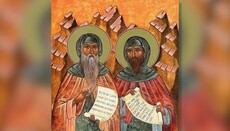Point of view: quarantine and Eucharist

It’s easy to argue about hermits, ascetics and Mary of Egypt on paper. But what does the prospect of remaining without the Church and Eucharist hold for us in reality?
From the minor headlines of international news, the coronavirus has become the reality of today's Ukraine. The reality being frightening for some, annoying for others and burdensome for everyone. The quarantine regime, restrictions in our everyday routine, overall tension...
In addition to all this, unprecedented preventive measures have affected the church life: empty temples, parishioners wearing medical masks, outdoor services. Besides, the information has been floating for almost a week now that possible tightening of the preventive regime can lead to the closure of temples for the quarantine period. There is a lot to stress out about.
However, quarantine, which so unexpectedly barged into our lives, can be very useful for us, the Orthodox. And it’s not at all that by carefully adhereing to the quarantine requirements, we will protect ourselves and our loved ones. Quarantine is a great opportunity to look at familiar things from an unusual angle.
Never-ending commotion, haste, the desire to always get ahead of ourselves even if there is need to, do not give a person the opportunity to look either upward or inward.
The trouble of modern man is that, being immersed in the hustle and bustle, running through life and not allowing himself to catch his breath again, he sees nothing around him. Never-ending commotion, haste, the desire to always get ahead of ourselves even if there is need to, do not give us the opportunity to look either upward or inward. Over time, we get accustomed to things that seem ordinary, unshakable, and taken for granted. The beauty of nature, the love of near ones, health, the joy of parenhood ... All this, individually and collectively, is an invaluable gift of God. But who actually stops to think about it in our hectic life marathon?
We have approximately the same thing in our church life. For us, the vast majority, the Church is a kind of life constant. The generation of the 60-70-80s has no experience of restrictions in church life, cessation of services, closure (even temporary) of temples. Free access to temples, shrines, services, sacraments – all this is a normal state of things and no other way.
Over time, a person gets accustomed to things that seem ordinary, unshakable, and taken for granted.
Who and when took customary things as God's gift? Who and when appreciated self-evident things? For years, with a light heart, we would skip Sunday worship; we would not care much if we were late or left the service long before the end. How many of us are those who, even preparing for the Eucharist, could appear in the church not before the liturgy but before the beginning of the Gospel reading? What about optional attendance of Vespers, if you do not partake of the Holy Communion? What about leaving Vespers immediately after anointing? The list is to be continued.
And suddenly – there can be no more than ten people in the temple; mass communion is forbidden; the prospect of cessation of services throughout the country is looming on the horizon...
We appear to need so little to stop acting like home-grown religious philosophers, room theologians and liturgists of a parish scale.
At a certain point it became clear that "for granted" is actually the most important thing. It is easy to rant about hermits, ascetics and Mary of Egypt, but in reality a mere prospect of being left without your temple, without the Eucharist, without vespers and these endless all-night services induces eventually fear, insecurity and a feeling of losing ground.
We appear to need so little to stop acting like home-grown religious philosophers, room theologians and liturgists of a parish scale. We suddenly grasped the true meaning of the “great and generous mercies” we request God at each worship service being itself a gift from the Lord, which is indispensable to life, though so familiar and undervalued.
There is something to think about, isn’t there?











